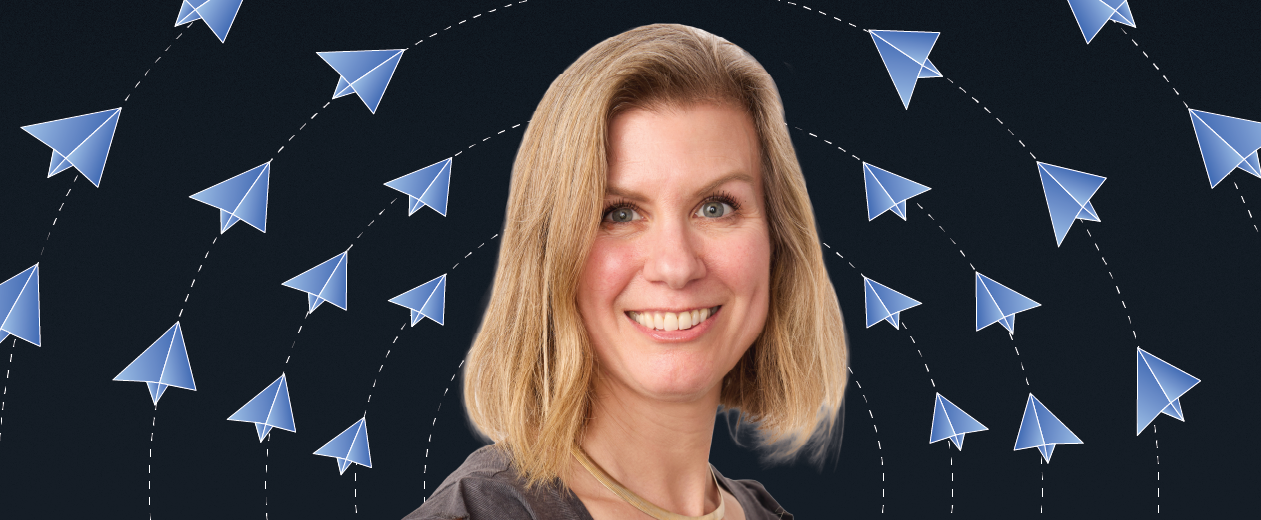
February 24, 2026
February 24, 2026

Reading time
July 10, 2024
January 19, 2023

Pictured above: Zach Kitschke, CMO, Canva (l); Stefania Mallett, co-founder and CEO, ezCater (below); and Chuck Kellner, strategic discovery advisor, Everlaw (top).
The New Year is in full swing and as we look ahead, it’s clear that 2023 will be a fascinating time for the workplace. Intensive changes brought about by the pandemic have yet to settle. If anything, they’re accelerating as more long-term changes take hold across corporate America.
In fact, some Fortune 500 companies are calling employees back to the office, while others close their doors and send employees to work from home for good. Generative AI is also now posing existential questions for the future of creative industries. Meanwhile, leaders anticipating a recession are scrambling to rein in costs while trying to keep employee morale high.
To better understand what’s around the corner for employees, leaders and companies alike, we caught up with several experts from Mission North’s Future of Work portfolio: graphic design and publishing platform Canva, legal tech firm Everlaw and food-for-work provider ezCater. Collectively, these industry leaders are fostering productive, collaborative workplaces. Here's what they shared:
Zach Kitschke, Chief Marketing Officer, Canva: Visual communication is taking a greater hold in the workplace for everyone, regardless of where they sit in an organization. It’s so prevalent that at Canva, we have expanded our business to meet this need by introducing more workplace tools to help anyone shine at work. The demand has been unprecedented, and we don’t see this trend slowing down.
In the coming year, we expect the professional consumer—or the “prosumer”—will aim to elevate their design skills so they can create and collaborate with colleagues in a more productive and efficient way.
Stefania Mallett, Co-Founder & CEO, ezCater: I expect a lot of experimentation with physical spaces for those who have the option to work from home, but who occasionally want or need to come together. Many companies whose work can be accomplished from home are now thriving with a geographically distributed workforce. Combine that with inflation driving up commuting costs, and I anticipate more reimagined workspaces like hyper-local pod offices, plus more offerings of large shared spaces from hotels and other facilities.
Chuck Kellner, Strategic Discovery Advisor, Everlaw: Many organizations are returning to the office either completely or in hybrid models. But the technologies, habits, and collaboration tools that we fostered during the pandemic are never going away.
I expect that we will fully embrace collaboration technologies in 2023. More organizations will adopt messaging platforms as standard and incorporate them into their frameworks for security, compliance and information governance. (Think about the ubiquity of Teams, Zoom and Slack compared to three years ago!) These shifts will allow organizations with creative, growing, and geographically dispersed workforces to compete for, and keep, the best talent.
<split-lines>"I anticipate more reimagined workspaces like hyper-local pod offices, plus more offerings of large shared spaces from hotels and other facilities."<split-lines>
Chuck: I'm seeing organizations consider how to adapt to Gen Z employees in different ways than they did with Millennial workers. I know there are studies indicating that each new generation wants something "different" from work, but I think that's pop science.
I work closely with cross-generational, cross-cultural, cross-everything teams, and we all want meaningful and rewarding work in sustainable jobs. That means doable jobs that match their initial descriptions; and jobs that are supported by quality management, training, mentorship and technology. It also entails leadership respecting reasonable working hours and offering solid benefits, workplace safety, and a sense of belonging. I don't think these desires change across generations.
Stefania: Six in 10 workers cannot do their jobs from home. Yet many business news headlines over the last three years about workplaces, collaboration, and team building center on remote or hybrid workers. Perhaps this is because this kind of work is still new.
Let’s not forget the perspective of the biggest segment of our employee population. For example, what are the best parts of remote or hybrid work? I think it’s the flexibility. So, how can we offer that to workers who must come into the workplace? Conversely, what are the best parts of working together in person? In my view, it’s the serendipity and the peer-to-peer learning. How can we offer those to remote or hybrid workers?
Zach: There’s a lot of debate about the role generative AI will play in the workplace and what it will mean for creatives. Ultimately, I think AI will fuel new frontiers for our creativity. Like power steering made it easier to drive a car, AI will put designers even more in the driver’s seat as brand custodians.
AI is poised to be a strong partner especially to those in design roles. It will be the technical foundation that minimizes mundane work, giving them more space to bring their visions forward. It will complement their creativity and be the silent weapon that empowers designers to see their brand work through.
<split-lines>"Like power steering made it easier to drive a car, AI will put designers even more in the driver’s seat as brand custodians."<split-lines>
Our thanks go out to Chuck, Zach and Stefania for offering their bold takes for the coming year, in everything from office dynamics to job satisfaction and collaborative tools. Our Future of Work practice looks forward to seeing what comes to fruition. One thing we know for certain: There’s a lot in store for the next 12 months.
For more information on Mission North’s Future of Work practice, click here.

February 24, 2026
February 24, 2026

February 12, 2026
February 13, 2026